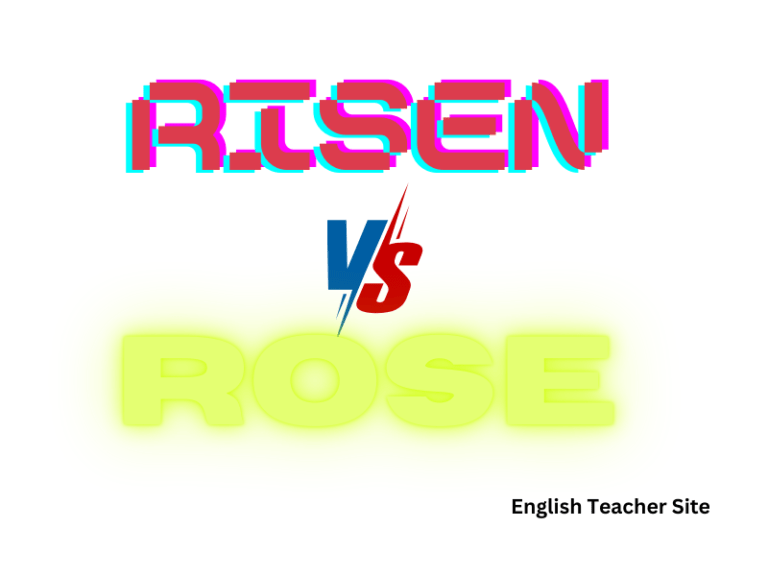Understanding Swore vs Sworn: Dissecting the Past Tense of Swear

- ‘Swore‘ is the simple past tense of ‘swear,’ used for actions completed in the past.
- ‘Sworn‘ is the past participle form, used with perfect tenses and as an adjective.
- The use of ‘swore’ and ‘sworn’ depends on the context, with ‘sworn’ often appearing in formal or legal settings.
To master these forms, it’s important to see them in context. Phrases in the present tense will use ‘swear’ to describe a current action, whereas ‘swore’ describes an action that has already happened. ‘Sworn’ is often seen in more formal or legal contexts and can convey an action that either happened at an indefinite time in the past or is viewed in relation to the present or future, especially when discussing oaths or commitments.
What’s the Difference Between Swore and Sworn: Past Tense of Swear
” These terms are commonly confused, but each serves a unique grammatical role.
“Swore” and “Sworn” as the Past Tense Forms of “Swear”
Swore:
- Definition: Swore is the simple past tense of “swear.”
- Usage: It is used to describe an action that was completed in the past.
- Example: She swore to keep the secret yesterday.
Sworn:
- Definition: Sworn is the past participle of “swear.”
- Usage: It needs to be combined with an auxiliary verb such as “have,” “has,” or “had” to form perfect tenses.
- Example: They have sworn to uphold the law.
What Does Swear Mean?
The term ‘swear’ can be used to describe both offensive language and the act of making a solemn promise. It’s essential to differentiate between its use as an informal term for cursing and its formal context of taking an oath.
Defining the Verb
Swearing has multiple facets. One uses it to express strong emotions or offense, often when they are angry. Another primary context involves making a serious commitment or promise, where one might swear an oath of allegiance or vow to perform an action with sincerity. These two perspectives on the verb swear reveal its versatile role in the English language, from casual to ceremonial use.
Forms of the Verb Swear
The verb “swear” has three core forms: the base form “swear,” the past simple “swore,” and the past participle “sworn.” These variations are essential for constructing different tenses.
Identifying Variations
Base form: “swear”
- Used in the present simple tense.
- Example: They swear to uphold the law.
Past simple: “swore”
- Indicates an action completed in the past.
- Example: She swore the statement was true yesterday.
Past participle: “sworn”
- Used with auxiliary verbs to form perfect tenses and passive voice.
- Example: They have sworn allegiance.
What’s the Difference Between Swore and Sworn?
Understanding the different functions of swore and sworn can enhance clarity in English language usage, particularly in past tense forms.
Distinguishing Past Tense Forms
Swore is the simple past tense of the verb to swear. It is typically used to describe an action that was completed in the past. One might say, “She swore an oath yesterday.”
Sworn is the past participle form of to swear. This form is used in perfect tenses or as an adjective. In perfect tenses, it pairs with the auxiliary verbs “have,” “has,” or “had,” as in “They have sworn to uphold the law.” As an adjective, it could be used like this: “He is my sworn enemy.”
Examples of Swear in the Present Tense (in Sentences)
When someone utilizes the present tense of the verb “to swear,” they are usually talking about the here and now. Below are several examples of how “swear” is used in sentences in its present form.
- He swears to tell the truth whenever he’s asked for his account of events.
- She swears by her new skincare routine, claiming it has transformed her complexion.
- They swear they have completed all their homework, even without being reminded.
In interrogative statements:
| Person | Sentence |
|---|---|
| He/She | Does he/she swear to keep the secret? |
| They | Do they swear allegiance to the flag during the ceremony? |
The verb can also express a habitual action, as in:
- John swears more often than he should, especially when he is frustrated.
- Mary swears by organic food for maintaining her health.
In each example, “swear” is the root form and fits naturally into the current moment being discussed or into a general truth about habits or regular behaviors.
Examples of Swore in the Past Tense (in Sentences)
- Simple Past: She swore she had locked the doors before leaving the house.
- Negative Form: He didn’t swear to keep the secret, so he felt free to share the information.
- Interrogative: Did they swear allegiance to the new leader during the ceremony?
Examples of the Past Participle Sworn (in Sentences)
The past participle sworn is frequently utilized in legal and formal contexts. It is the form used after have, has, or had, or to form compound tenses.
- She has sworn to keep the secrets she learned confidential.
- Witnesses are often sworn in before giving their testimony to ensure they promise to tell the truth.
- Sworn affidavits are crucial in court as written declarations made under oath.
The word can also be used adjectivally to describe something related to an oath.
- The sworn statement provided a crucial piece of evidence for the case.
In everyday language, sworn can appear in common expressions:
- They had sworn off eating junk food for a month.
- He’s my sworn enemy; we have been at odds for years.
The use of sworn in sentences therefore demonstrates a sense of firm commitment or obligation tied to the action of swearing.
Synonyms of Swear (as in Oath)
When discussing the term “swear” in the context of oaths, several synonyms reflect the solemnity and gravity of making such a pledge. These synonyms emphasize the binding and formal nature of the commitment one is making.
Pledge: This term denotes a solemn promise or undertaking.
Example: They made a pledge of allegiance to their country.
Vow: A vow carries a powerful connotation, often implying a sacred or religious promise.
Example: In their wedding, they exchanged vows to support each other.
Affirm: To affirm is to declare something solemnly and formally as true.
Example: The witnesses affirm their commitment to telling the truth.
Avow: This word suggests a declaration or acknowledgment that is made openly and without shame.
Example: They avow their dedication to the cause.
Assert: Asserting often involves stating firmly and emphatically a belief or position.
Example: She asserts her innocence in front of the judge.
Attest: To attest is to provide or serve as clear evidence of something.
Example: They attest their loyalty with a firm handshake.
Profess: Professing involves declaring something, often a feeling or belief, openly.
Example: He professed his undying love before the gathered crowd.
Declare: To declare means making a formal statement or announcement.
Example: The leader declared a state of emergency.
Here is a concise summary in list form for quick reference:
- Pledge: A solemn promise.
- Vow: A sacred or serious promise.
- Affirm: To solemnly declare as true.
- Avow: To openly acknowledge.
- Assert: To state firmly.
- Attest: To provide clear evidence.
- Profess: To declare openly.
- Declare: A formal announcement.
Each term reinforces the concept of commitment and adds its unique nuance to the act of swearing an oath.
Synonyms of Swear (as in Curse)
Here’s a concise list of terms that can be used interchangeably with “swear” in this sense:
- Curse: To express wish of misfortune to someone or something.
- Cuss: A less formal variant of curse, often seen as mild or colloquial.
Moreover, other words carry a similar connotation to “swear” and are often used in situations where strong emotions or reactions are expressed:
- Blaspheme: Speaking irreverently about sacred things.
- Profane: Showing contempt or disrespect for what is considered sacred.
- Vilify: To speak or write about in an abusively disparaging manner.
For instance:
- To curse someone might imply a more intense desire to harm or invoke bad luck.
- To blaspheme suggests an irreverent or offensive comment towards something holy or sacred.
- Vilify would be used when one speaks negatively with the intention to lower someone’s reputation.
Idioms with the Word Swear
Idioms that include the word “swear” often relate to promises or strong expressions. Here are a few commonly used ones:
- Swear up a storm: This idiom implies that someone is using a lot of profanities. It often indicates anger or frustration.
- Swear blind: When someone “swears blind,” they assert something with great insistence and assure others of its truthfulness, even if it seems unbelievable.
- Swear by something: This means to have great confidence in the value or effectiveness of something. For example, “She swears by this brand of shampoo for keeping her hair healthy.”
- Swear on someone’s grave: To make a very serious promise or to assure someone of the truth of one’s words, oftentimes as a sign of respect or seriousness.
- Swear like a sailor: Describes someone who uses a lot of curse words, suggesting they swear as frequently as a stereotypical sailor might.
Swear off something: To make a personal commitment to stop doing or using something, typically a harmful habit. For instance, “He swore off junk food after his health scare.”
- Swear someone in: Refers to the formal procedure of administering an oath, usually in a legal or official context, like when a witness takes the stand or an official enters office.
Source
1. Harper, Douglas. “Etymology of swear.” Online Etymology Dictionary, https://www.etymonline.com/word/throw
2. Definition of swear from the Collins English Dictionary
My name is Khamis Maiouf. I am the creator of the English Teacher Site, dedicated to providing valuable resources and insights for students around the world. With a passion for education and a commitment to helping students enhance their skills, I aim to make English teaching more effective and enjoyable for both educators and students.






